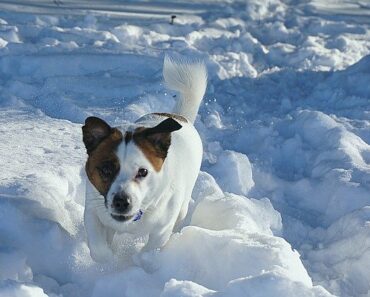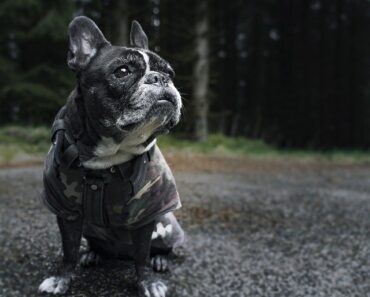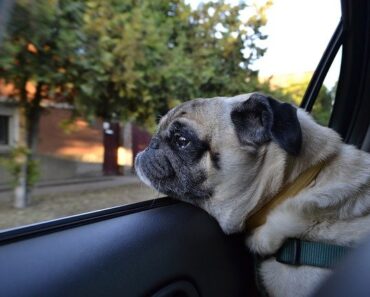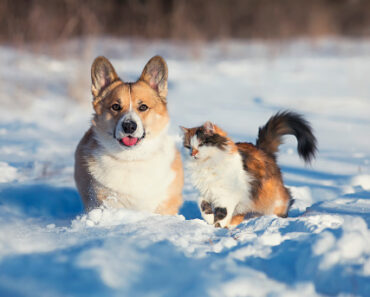
What questions to ask?
Use and activities of the dog.
The first question to ask yourself is: Why do you want a dog? Do you want a dog that you can play with, walk for long hours, run with? Do you want a working dog (hunting, agility, guide…)? Do you want a dog to keep you company at home? A dog for your children ? This influences the character of the dog you will acquire.
Housing and lifestyle.
The desire to have a dog is also linked to your home and lifestyle. Do you live in the city or in the country? In a house or an apartment? Do you stay at home a lot or do you work from 8am to 8pm? Where does your dog sleep: in the house, in a garage? Would you like a dog to stand guard?
Budget
What budget do you want to put for your dog? It is important to know that a large dog is more expensive: food, veterinary care, etc. Also, some breeds of long-haired dogs for example may require grooming expenses.
Household composition
Who lives in your home? Children, elderly people? This factor must imperatively be taken into account, so that the temperament of the dog is adapted to the members of your family. Furthermore, does your dog have to live with other animals?
Aesthetic preferences
Do you prefer large/small dogs? Short or long hair ? Which color ?
Experience
And finally: have you ever owned a dog?
Where to acquire a dog?
Regardless of the breed of dog you wish to acquire, the question of where to buy is important. Here are the most common solutions:
- Associations (SPA, foster families, etc…): you don’t have to be very demanding about the breed of dog you want to buy, especially since you generally have a crush on the skinny little one curled up at the bottom of his crate! There are more adult dogs than puppies. Spend some time with the dog, to see if he is not aggressive or shy. Talk to volunteers who know the dog, and don’t take the risk of taking a dog that needs to be completely re-trained if you have no experience with it.
- Breeders: Generally, breeders specialize in a particular breed. Family type kennels are to be preferred: breeders know the breed and their animals well and can advise you. The dogs are generally well socialized. Be careful however with inbreeding, the breeder must be able to provide you with the inbreeding coefficient of the dog. Also be aware of the industrial aspect of some large breeders.
- Living rooms: puppy living rooms are more and more frequent in France, but beware, you can find everything there! Dogs may be in poor health, have contracted an illness during transport or during the show itself (parvovirosis for example). The seriousness of the breeders is uneven. Make sure you are well informed before buying a dog in this type of event.
The place of acquisition of your dog should be adapted according to your expectations, but in all cases you must be vigilant and take the time to ask all the necessary questions to the owner and to observe the dog’s behavior. In kennels or salons, dogs can be registered in the LOF or not. The price of the dog depends on it.
Dog breeds and frequent diseases
Some breeds are predisposed to diseases. Here is a non-exhaustive list:
- Poodle or Dachshund type dogs are predisposed to Cushing’s syndrome, an endocrine disease that develops around the age of 10 years.
- Giant breed dogs (Great Dane, Saint Bernard, Bassets Hound, Labrador Retriever, Irish Setter, German Shepherd, Boxer…) are predisposed to torsion-dilatation syndrome of the stomach, an emergency disease that most often requires abdominal surgery.
- German Shepherds are predisposed to certain tumors, dermatoses, and paralysis of the hindquarters.
- Boxers are predisposed to many types of tumors.
- Brachycephalic breeds (Bulldogs, Pugs, Pekingese…) are very frequently prone to respiratory problems, sometimes serious because of the conformation of their head.
- Small dogs are predisposed to heart disease and among them the Cavalier King-Charles are the most affected by certain heart diseases as well as syringomyelia.
- Labradors, Golden Retrievers… are predisposed to dysplasia (hip, elbow…). Don’t hesitate to consult a veterinarian before purchasing your dog. He will be able to advise you.
Beware of regulatory constraints!
- Papers to be delivered at the time of the sale : the law obliges the seller to provide a certain number of documents when selling a dog:
The certificate of sale or invoice, with date of sale, contact details of the seller and buyer, sex and breed of the puppy, its color and variety, name, date of birth, tattoo or transponder (microchip) number, its LOF registration number or the file number of the declaration of the litter with the Société Centrale Canine (if the dog is intended to be LOF), the names and pedigree number of the parents, the sale price and the method of payment, the minimum age for the confirmation of the dog in the LOF, the name of the veterinarian of the seller and that of the buyer, the possible defects found.
The tattoo or electronic identification card
The veterinary certificate before transfer
Birth certificate or definitive pedigree if the dog is registered in the LOF
An information document (booklet or pamphlet)
The health record or the European passport bearing at least mention of the first vaccination carried out by a veterinarian.
- For dogs of category :
First category dogs are forbidden for sale (or donation) and purchase! The dogs of first category are dogs resulting from crossbreeding, morphologically resembling the Staffordshire terrier or American Staffordshire terrier, the Mastiff, the Tosa.
The dogs of second category are dogs of Staffordshire terrier or American Staffordshire terrier, Rottweiler, Tosa or morphologically similar to the Rottweiler. For the purchase of a dog of second category, you must have a possession license. At the time of sale, the dog must have been vaccinated against rabies and you must have the rabies vaccination certificate.
Dog and child
Contrary to clichés, there is no such thing as a “good” and “bad” race. If you wish to acquire a dog and you have a child, you will have to :
- Pay great attention to the dog you intend to buy: observe its behavior, detect the slightest aggression…
- Beware of puppies, which are more feisty. Be also careful with dogs from shelters or associations, which have been mistreated or abandoned: their education is difficult and they can be aggressive towards your child.
- Be careful with the education of the dog and your child! Teach them the right gestures and never leave them both alone!
In case of doubt, do not hesitate to consult a veterinary specialist.
Choosing your puppy thanks to behavioral tests
Tests set up by behaviourists give an insight into a puppy’s behaviour and whether it could be adapted to your family situation.
- The imprinting test: “Imprinting” is a complex mental process that leads the puppy to consider man as one of his fellow human beings and therefore to seek contact with him. Only puppies that have received good imprinting will be able to become useful dogs, well socialized and willing to collaborate with humans. A simple test to evaluate the puppy’s imprinting that you wish to acquire is to look at the puppy’s behaviour towards you :
The puppies run around you, leap and play: they have received a good imprinting and are very well socialized.
The puppies will circle around you while maintaining a safe distance. Some are aggressive, some shy, some more reckless. Imprinting is said to be incomplete. Repeat the test a week later. If the reaction of the puppies is the same, it is because the puppies have received focused imprinting: they are sociable with one person. These dogs will then be more difficult to train and socialize. If you still decide to buy one from this litter, take the time to come back several times to the kennel, to get to know the puppies and to play with them.
If the puppies run to hide in a corner when you arrive, it is because they have not received any imprinting. These puppies are likely to be wild, fearful of humans and very difficult to train. It is advisable to turn to another kennel.






